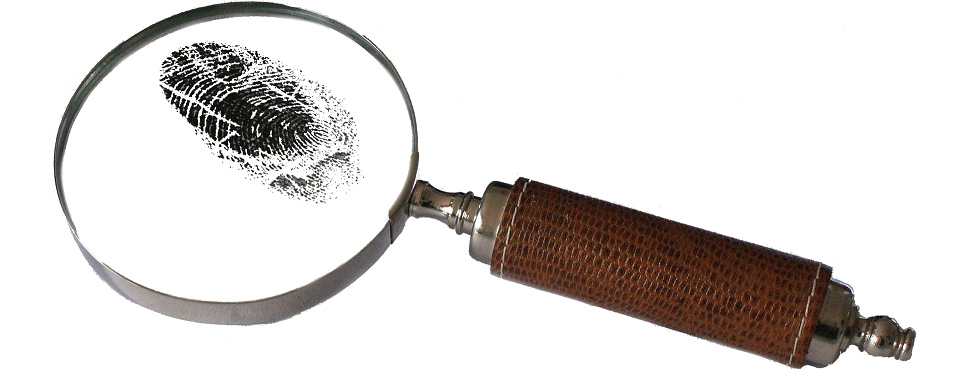What Should I Do If the Police Are Looking For Me?
If you are under investigation or accused of a crime, the sooner a top criminal defense lawyer intervenes on your behalf, the more help they can be.

An experienced attorney can take measures to protect and defend you on a pre-charge basis if the police are looking for you.
At LEWIS & DICKSTEIN, P.L.L.C., we often get calls from people concerned that the police are searching for them. They frequently ask, “What should I do if the police are looking for me?” Whether you believe you are innocent or guilty of an alleged crime, it is ALWAYS crucial that you reach out to a criminal defense attorney to discuss your situation. Many make the mistake of waiting to see what happens before seeking legal advice. By the time criminal charges come, you may have missed an opportunity to stop a criminal case before it started.
Recently, someone called us because he saw his picture connected with a possible crime on the news. The story spread across social media, and he was rightfully concerned that criminal charges were imminent.
Rather than walking into the police station, this person called us for help. It was smart because the early stages of a criminal investigation can be the best time to stop a case in its tracks or, if necessary, mitigate the damages. In this situation, we worked closely with law enforcement to help resolve the situation while protecting the client’s rights. Due to our efforts, the police decided to drop the case.
You Need a Professional Defense Lawyer
Excellent criminal defense attorneys like those at LEWIS & DICKSTEIN, P.L.L.C. are the best resource for people in similar situations. Our attorneys know when and how to cooperate with the police and when to assert your right to silence. They will advise you of your rights and the possible risks and present you with all the information you need to make informed decisions. Should criminal charges eventually develop, they will stand by you throughout the process and ensure the court treats you fairly. If a client calls and says, “The police are looking for me!” our team will mobilize for your protection and attempt to stop charges from being filed in court.

When hired on a pre-charge basis, some of the things we do to protect clients are as follows:
- Conduct an independent investigation to find mitigating or exculpatory evidence.
- Determine if we should interview witnesses to secure favorable evidence.
- Help the client decide if proactive therapy or educational programs may mitigate in the client’s favor relative to bond, plea bargaining, and sentencing.
- Advocate with the police or other law enforcement investigators on the client’s behalf.
- Prevent the client from inadvertently providing incriminating evidence, such as talking with the police.
- Consult with the client to alleviate anxiety and fear by helping the client understand the process.
- Negotiate for an opportunity to self-surrender instead of being arrested on a warrant.
- And much more!
If the police issue a warrant for my arrest, will it ever expire?
Arrest warrants, unlike some other legal documents, do not come with an expiration date. Once issued, an arrest warrant remains active indefinitely until it is executed by law enforcement or recalled by the court. This means that no matter how much time has passed, you can still be arrested if the warrant is discovered during a routine traffic stop, background check, or any other law enforcement activity.
Implications of an Active Warrant
Having an active warrant can have significant consequences on your daily life. Here are some key points to consider:
- Risk of Arrest: You can be arrested at any time, whether at home, work, or during a routine traffic stop.
- Background Checks: Warrants can show up on background checks, potentially affecting employment opportunities, housing applications, and more.
- Legal and Financial Consequences: Ignoring an active warrant can lead to additional charges, higher bail amounts, and a negative impression in court.

Frequently Asked Questions
How do I tell if I have a warrant?
Determining if a judge issued a warrant for your arrest can be challenging. If the warrant is not in a public record, you would have to be able to get the information from a police agency, prosecutor’s office, or a court. You might have to work with an experienced criminal defense lawyer to obtain this information because court staff, police officers, and prosecutors are often reluctant or refuse to speak to unrepresented individuals.
What if the police are at my door?
If the police or law enforcement agents show up at your door, it is essential that you assert your right to remain silent. Do not speak to the police about allegations against you or pending charges under any circumstances. Unless the officers have a warrant for your arrest or to search your home, do not let them into your home, car, garage, or business. If the officers have a search warrant, you must let them enter, but you are not required to speak to them, and you should remain silent and unequivocally request your lawyer. If the police have an arrest warrant, you must surrender peacefully. If you are wrongfully charged or arrested, your lawyer will handle the situation at the appropriate time. Again, regardless of the trickery or manipulation used by police officers to get you to speak to them, please do not fall for it and assert your rights to remain silent and for an attorney.
What do I do if the police are looking for me?
If you find out the police are looking for you; you first call an experienced criminal defense lawyer for help. Resist the temptation to contact the police to find out why they are trying to find you or tell “your side of the story.” The belief that the police are searching for the truth is a popular and dangerous misconception. Police do not search for the truth; they build cases. If someone accuses you of a crime, the police have one mission: to build a case against you. They will twist anything you say or do into evidence against you. There is a reason that the Miranda Warning says, “Anything you say can and will be used against you.” Another dangerous and harmful misconception is that hiring a lawyer makes you “look” guilty. The truth is that hiring a good, respected lawyer makes you look intelligent and serious about your rights. People are not prosecuted and convicted because of how they “look.” Prosecutors charge cases based on evidence, including evidence the defendant accidentally or mistakenly provided to the police.
What Can I Do if the Police Want to Question Me?
Suppose the police contact you. First, assert your right to remain silent by saying, “I respectfully invoke my right to remain silent.” The second thing you do is unequivocally request a lawyer. Saying, “I think I might want to talk to a lawyer” or “Maybe I should hire an attorney,” is insufficient to invoke your rights. You must be clear. For example, say, “I request that my lawyer be present during any questioning.” If you find out that the police want to talk with you and have not yet made contact, hire an attorney immediately. Your lawyer can contact the police on your behalf and prevent them from making direct contact. Additionally, your lawyer can probably prevent your arrest and arrange your voluntary surrender on new charges.
What does it mean to be under investigation?
If you are under investigation, you are a suspect or target of a federal or state criminal investigation.
How would I know if I was under investigation?
You might not know about a police investigation until they arrest you. You know you are the target of an investigation if you find out the police are trying to locate you or have requested your personal records, such as your medical, bank, or cell phone records. If you see signs of an investigation or law enforcement surveilling you, it is vital that you seek legal advice right away.
What is the process of investigation?
A lead detective or agent is assigned when someone files a complaint, or the police uncover a suspected crime. They start by collecting information from readily available sources, like witnesses, social media, and evidence in their custody. Depending on the complexity of the investigation and severity of the allegations, they might get search warrants, surveil a suspect, look through trash, conduct an expert analysis of evidence, and seek out additional witnesses and evidence. Typically, the last step is to contact the accused person or suspect and try to obtain inculpatory evidence, such as a confession, inconsistent statements, consent to search, or observation of suspicious mannerisms.
What should you do if the police knock on your door?
Generally, you do not have to open your door for the police or anyone else. Opening your door provides police the opportunity to see inside your home and potentially find probable cause to enter based on something in plain view or if something gives them reasonable suspicion. If an officer has no warrant, you can ignore the knock or step outside and close the door behind you. If the officers state they have a warrant, you must peaceably comply. Failure to comply with a warrant is nonproductive and will probably result in criminal charges. If the warrant is not legally supported or in bad faith, your lawyer can get any evidence suppressed or the charges dropped.
If it appears that the officers want to question you, it is in your best interest not to answer any questions. Officers might try to manipulate you through kindness and compassion or threats and bullying. Do not fall for it! Say, “I invoke my right to remain silent and demand an attorney.”
The Time to Call is NOW
If you believe that the police may be looking for you, or you think you were involved in activities that could lead law enforcement to pursue you, it is time to call the attorneys at LEWIS & DICKSTEIN, P.L.L.C. In fact, if you are asking, “What should I do if the police are looking for me?” it might already be too late to stop the charges. With decades of experience exclusively practicing criminal law, we will pursue any opportunity to protect you against charges, including preventing criminal charges when possible. If you cannot avoid charges, we will be at your side and defend you in court. You have the best chance of securing a favorable bond if you turn yourself in with an attorney from a highly reputable firm like LEWIS & DICKSTEIN, P.L.L.C. You demonstrate to the court that you are taking the matter seriously. With a tenacious attorney on your team, you send a message to the prosecutor that steamrolling you in court is not an option.

Effective Pre-Charge Criminal Defense if the Police Might Be Looking for You
LEWIS & DICKSTEIN, P.L.L.C. is Michigan’s criminal defense firm. Located in Southfield, we represent clients in Oakland County, Wayne County, Macomb County, and throughout Michigan. We should be your first call if you are concerned that the police are looking for you or if the government has charged you with a felony or misdemeanor. The early stages of a case can be the most important. If you call us for a free consultation and say, “The police are looking for me!” we will know exactly how to help and protect you.
Call us today at (248) 263-6800 for a free consultation or complete an online Request for Assistance Form. We will contact you promptly and find a way to help you.











